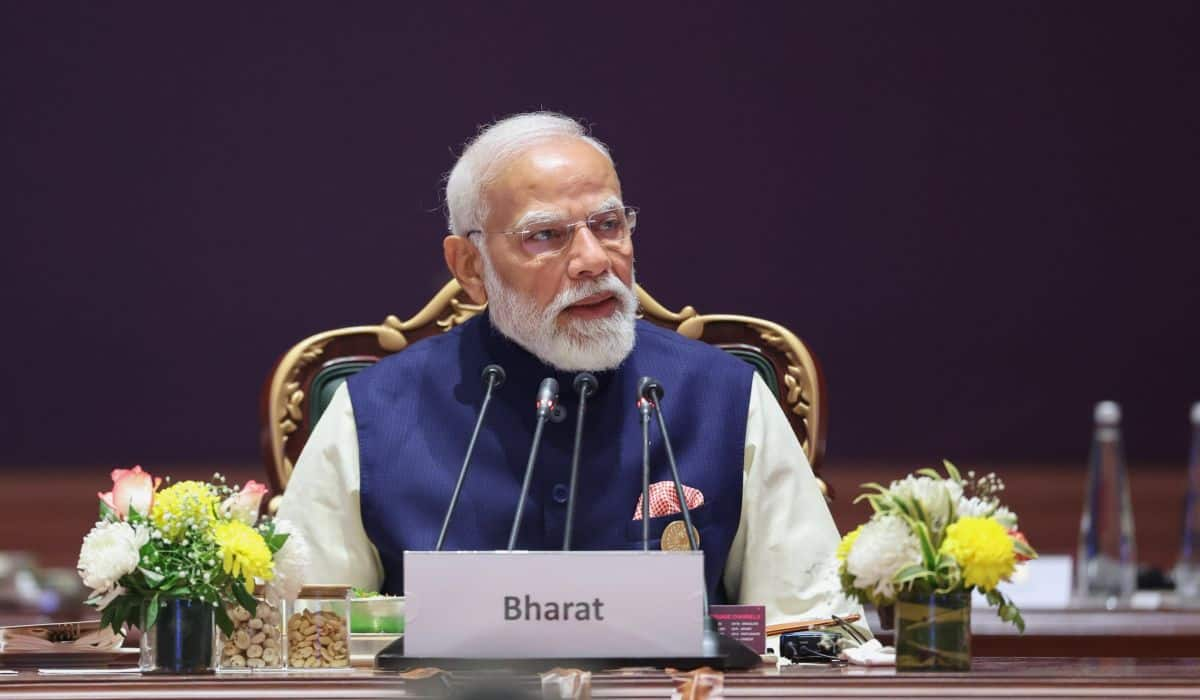Today marks a decade since the Pradhan Mantri Jan Dhan Yojana was launched. For me, this initiative was more than just a policy - it was an endeavour to build an India where each and every citizen, irrespective of one’s economic background, has access to the formal banking apparatus.
Many of you, especially the youth, would be thinking- why does this matter so much? After all, in this age, having a bank account would be very basic and even taken for granted. However, when we assumed office in 2014, the situation was very different. It was almost 65 years since Independence, but access to banking was a distant dream for almost half of our households. Theirs was a world where savings were kept at home, vulnerable to loss and theft. Access to credit was often at the mercy of predatory lenders. The absence of financial security held back so many dreams.
This problem becomes even more ironical considering the fact that four and a half decades ago, banks were nationalised by the then (Congress) Government and that too in the name of the poor! Yet, the poor never got access to banking.
When the Jan Dhan Yojana was rolled out, I remember the scepticism that surrounded it too. Some people asked- could it really be possible to bring such a large number of people into the banking system? Will this effort lead to any concrete changes? Yes. The scale of the challenge was enormous, but so was the determination of the people of India to ensure it becomes a reality.
The success of the Jan Dhan Yojana has two parts to it. One is in the numbers:
Today, over 53 crore people who never imagined they would enter a bank have bank accounts.
These accounts have a deposit balance of over Rs. 2.3 lakh crore.
Over 65% of the accounts are either in rural or semi-urban areas, thus taking the movement of financial inclusion outside the metros.
Direct transfers worth almost Rs. 39 lakh crore have taken place.

But, the second part goes beyond the impressive numbers.
Jan Dhan Yojana has proven to be game-changing as far as women's empowerment is concerned. Almost 30 crore women have been brought into the banking system.
Likewise, the benefits of the scheme and the other benefits that come thanks to a bank account have positively impacted crores of SC, ST and OBC families. They have also benefitted those families who belong to the middle and Neo-middle classes. Had it not been for the Jan Dhan Yojana, the MUDRA Yojana, or the social security schemes of the Government, namely the Pradhan Mantri Jeevan Jyoti Bima Yojana, Pradhan Mantri Suraksha Bima Yojana and the Atal Pension Yojana would never have been as impactful.
Jan Dhan also became a vital pillar of the JAM Trinity- Jan Dhan, Aadhaar and Mobile. The landmark contribution of this trinity was to eliminate the scourge of middlemen and touts who, for decades, thrived in public loot. It is this trinity that ensured a stunning digital payments revolution in India, especially in the middle and later years of the last decade. The very same elements who doubted the relevance of a scheme like Jan Dhan were yet again mocking the need for digital payments in a nation like ours. But, once again, they underestimated the collective resolve of our people. India’s digital payments success story is noted world over. Over 40% of real time digital payments in the world happen in India!
A bank account has ensured hassle-free and direct transfer in almost all the government's flagship schemes, be it Ayushman Bharat, PM-Kisan for farmers, PM SVANidhi for street vendors and more. I am also reminded of the years of 2020 and 2021, when the once in a lifetime COVID-19 pandemic was at its peak. Had it not been for banking inclusion, the subsidies would not have been able to reach the intended beneficiaries.
The life journeys of those who benefitted due to this scheme are very touching and inspiring. PM Jan Dhan Yojana personifies dignity, empowerment and the opportunity to participate in the economic life of the nation. The foundations laid by this scheme are strong, but we have even more work to do! We will continue to build on this success to build a Viksit Bharat.
Today is also the occasion to congratulate each and every beneficiary of this scheme and laud the efforts of the countless banking staff who made financial inclusion their mission and ensured a better life for their fellow Indians!













